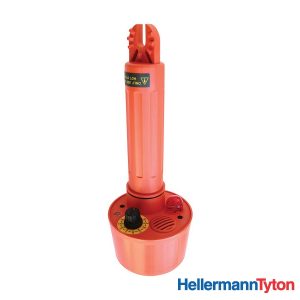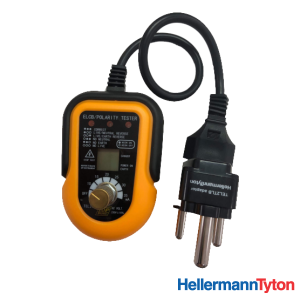Description
The High Voltage Instruments range of capacitive high voltage detectors has been designed to meet the latest IEC standards. A cone shaped plastic moulding houses the detector. The inner wall of the cone has a metallic screen coating to which the earth/ground parts of the circuit are connected. This screen coating is capacitively coupled to the earth/ground of the electric field and acts as a voltage divider with an internal
sensing capacitor. In this manner, high voltage appearing at the electrode is divided down and the voltage across the sensing capacitor is proportional to the voltage at the electrode with respect to earth/ground.
A test button is mounted on the viewing face of the detector. When the button is pressed a red lamp flashes and an audible alarm sounds. This is the display for voltage PRESENT. However, when the button is released the display changes to a green flashing lamp. This is the display for voltage NOT PRESENT. The detector is then armed and ready for use. This armed condition lasts about 150 seconds.
At the narrow top end of the detector housing there is a red band which indicates the limit mark. By definition the limit mark indicates the physical limit to which the detector may be inserted between live components or may touch them. However, when the detector is used with a contact electrode the rear moulding of the extension covers the limit mark. The rear moulding is coloured red and it then constitutes the limit mark.





